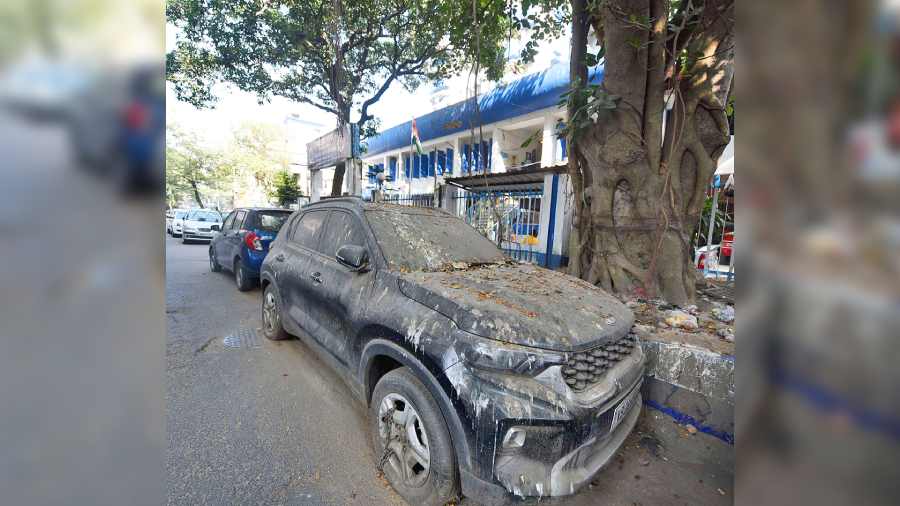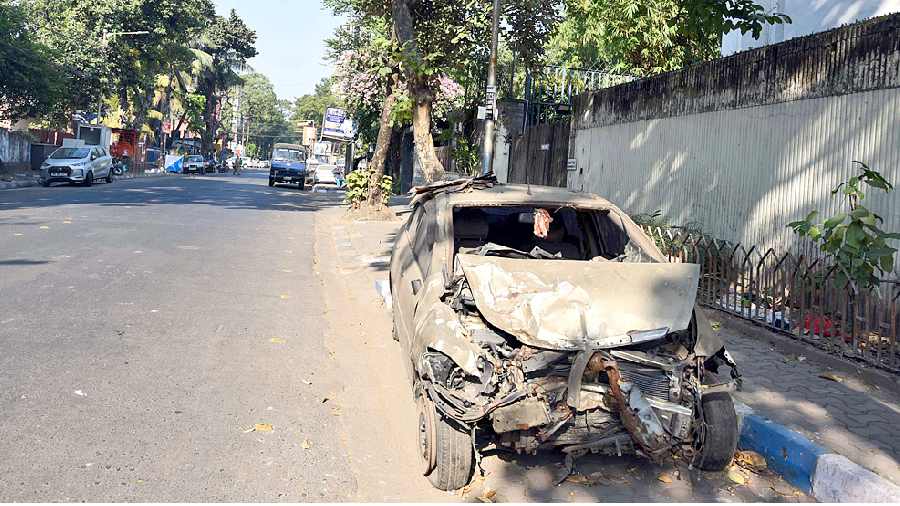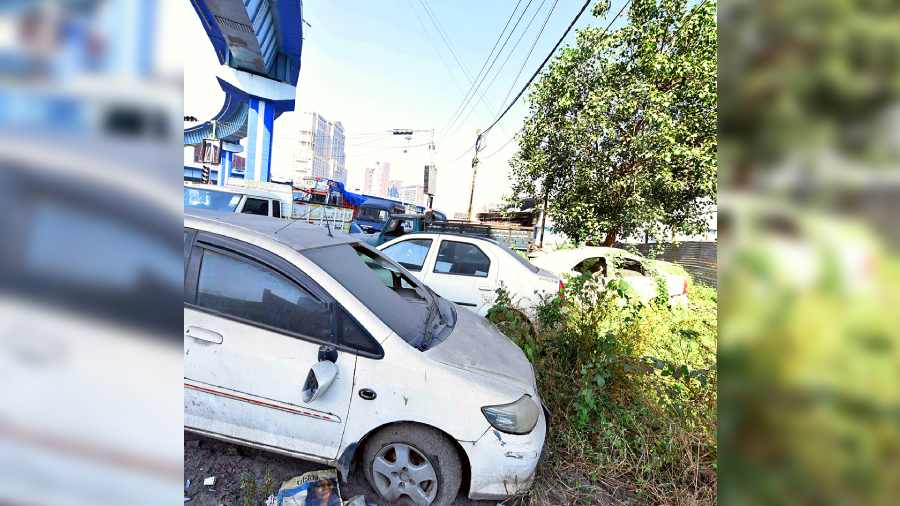Two days after mayor Firhad Hakim wrote to the city's police commissioner to remove “condemned” vehicles kept outside police stations, such discarded and unused vehicles are still stacked outside many police stations.
The Telegraph found such vehicles, seized by police for various reasons, outside Karaya, Pragati Maidan and Shakespeare Sarani police stations on Sunday. Neither the police nor the civic authorities had removed them.
The windowpanes of the vehicles had broken exposing the interiors. The twisted and mangled vehicles also had multiple depressions on them, where water can accumulate after rain.
An entomologist said water that accumulates in these depressions or inside a vehicle could stay for seven days or more and turn into breeding grounds for mosquitoes.
The Aedes aegypti mosquito, which transmits the dengue virus, can breed in a spoonful of stagnant water, the entomologist said.
A large number of dengue cases have been reported in the city this year. The disease has claimed a number of lives.
Police sources said almost every police station in the city has such vehicles on its premises, which have not been cleaned for weeks or even months.

A seized car in front of Karaya police station
On Friday, mayor Hakim had written to Kolkata police commissioner Vineet Goyal requesting him “to direct all the police stations to remove the condemned cars in a bid to control mosquito breeding”.
Officers in several police stations said on Sunday that they would start disposing of the vehicles this week.
“Only seven cars are parked in our compound. We will possibly send them to the earmarked dumping grounds,” said an officer of a police station in the Port division.
The majority of the seized cars that are unclaimed by owners or kept as exhibits in legal cases are dumped in a location along Basanti Highway and in Sick Lane in the Kidderpore area.
An officer of the central division said they had to follow a procedure before the vehicles could be taken from the police station premises to Kidderpore or the plot along Basanti Highway.
“Vehicles involved in road accidents, theft or abduction are seized for formal procedures. In case of accidents, the vehicle undergoes a motor collision test to ascertain if there was a mechanical fault. In other cases, the vehicles can be handed to the owner against a bond or declaration that he or she will produce the car in the same condition in court during the trial,” said the officer of the rank of assistant commissioner.
In many cases, the officer said, the owners refuse to claim the car either because of the damaged condition or because there are no claimants to a stolen car.
“In such cases, we send a message to the owner of the car if the owner is known. If the owner is willing to take the car on bond, we hand the vehicle to him or her. Or else we send the vehicles to the earmarked dumping ground. There, after a stipulated period, old vehicles are auctioned,” the officer said.

A seized car in front of Shakespeare Sarani police station. Picture by Gautam Bose
The officers also said that cars that had gathered dust over months or years could not be removed overnight.
The question, however, remains who will check whether the cars are turning into mosquito-breeding sites in their new locations.
A KMC official said that while they did visit police stations to check for mosquito-breeding sites, the inspections were not frequent.
Vector-control workers of the KMC, the official said, rarely touch the seized vehicles outside police stations because almost all cars are mired in some legal complications. "We tell the police what to do," said the official.
A Kolkatan has questioned the timing of Hakim’s letter to Goyal. He said that had the letter been sent at the onset of the monsoon, the surge in the mosquito population and the consequent outbreak of dengue and malaria could have been averted.
With winter approaching, the rate of breeding of mosquitoes will decline, said an entomologist.

